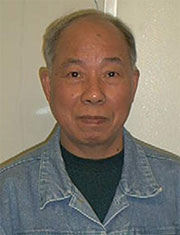Jing is married and has one son and one daughter living in China. He met his wife when they were in high school.
Family is a complicated resource for Jing in terms of his English language learning. Jing and his wife came to the US because his wife wanted to live near her sister. However, although Jing says that he and his wife came to Portland because of relatives, in an interview three years later, he reports that he didn't think it was a good idea to be dependent on his family because "they are not close to us". Gaining the financial independence (through work) for him and his wife to live on their own was a strong motivator for him to learn English.
Jing reports that in his family (extended family gatherings in the US), Chinese is used almost exclusively. He does say, however, that within his family, across the generations, the pattern of language shift or heritage language loss is evident and as a result of that shift, he has an opportunity for using English with the youngest generation in his family. In his last interview conducted in Chinese, when asked, "In what ways does your family help or hinder your learning English and life in the U.S.?", Jing reports:
| Jing: | In Chinese society, most people speak Chinese. However, with relatives, we have noticed that something happens differently. For instance, we have nephews who studied in high school in the US and some of my relatives were born here and went to college or have worked here. Their English is pretty good. We ask them for help. In addition to that, we have a newer generation: my nephew's children. They are now 4 and 5 years old. They speak English well. They give us some opportunities to learn English. When they watch cartoons at our house, we watch too. It is a help to learn English. |
Without children in his home, especially young children, the issue of language learning and family is a much different issue than it is with other learners in our portraits. Jing lives alone with his wife in the US. He, of course, speaks only in Chinese with his wife at home. While Jing has certainly made efforts to use English in his efforts to maintain an active social life in US culture, day-to-day life at home is still done in the home language which doesn't afford him the English language learning opportunities that are available for parents of school-aged children (see Inez).
